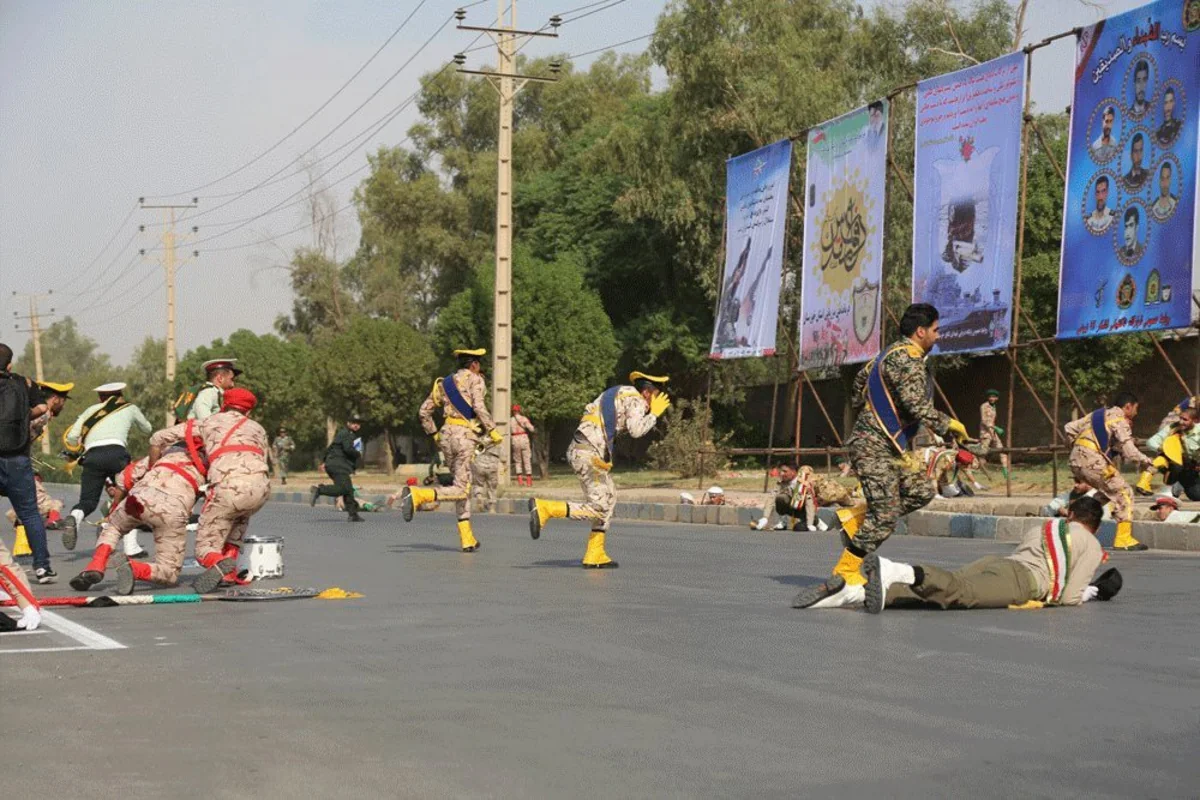Happenings in Iran - crisis at the door - COMMENT
- 05 October, 2018
- 07:34

Baku. 5 October. REPORT.AZ/ Iran has always been one of the most attractive countries in the world, including the region. It is not just about its rich underground and surface resources, but also its political, economic, social and cultural interests. Recent developments in the Islamic Republic are in world’s spotlight.
So what's happening in Iran? What is the main reason for the events?
For almost a year there has been a crisis in economic and financial issues in the Islamic Republic, and protests are being held.
Internal forces (conservatives and reformers) blame each other for the desperate situation. Conservatives see the main fault in President Hassan Rouhani and his government. In other words, domestic pressure on the government is intensifying. Everyone blames the government for the current situation. So, the first vice-president of Iran, Eshaq Jahangiri, apologized to the people for the problems: “I apologize to the honorable people for some problems and assure that the country's management and, at the helm, the Eminent Leader are working day and night so that we can eliminate the problems facing the country,” he said.
Jahangiri reassured that the government is fully aware of the conditions and difficulties faced by the ordinary people.
“Part of these hardships is the result of US sanctions and pressures, but what's important is that Iran has a great potential and capacities, and in addition to these capacities, there is an enormous manpower in the country,” he added.

Iran saw protests on the same issues back in December 2017 - January 2018. Actions began again in June of this year. After the US started applying the first phase of sanctions against Iran, US dollar rate rose sharply in country's financial market. Of course, the process seems to continue. On October 1, devaluation of national currency against US dollar from 17,000 tomans (170,000 rials) to 10,000 tomans in Iran caused panic among the population. In the midday, US dollar rose again to 15,000 tomans (150,000 rials). Notably, in March of this year US dollar was exchanged for 4 500 tomans.
The other incident is related to the Iranian diplomat. On June 30, French law enforcement officers detained three suspects who planned to attack the site of the meeting of representatives of the opposition People's Mujahedin of Iran in Île-de-France region of Paris. On that day two Iranian-born people were arrested in Belgium on suspicion of planning an attack. 500 grams of acetone-peroxide (tricyclic-acetone-peroxide) were reportedly seized on them. 46-year-old Iranian diplomat Asadullah Adadi is also charged with organizing the rally. The German court has decided to extradite the diplomat with arrest warrant who is suspected of terrorism to Belgium.
By the way, it is not the first time that Iranian diplomats are accused of organizing terrorist acts.

199,485 people were killed and 300 were wounded in an explosion in front of a 7-storey building in Buenos Aires on July 18. In 1992, 29 people were killed in an explosion near the Israeli embassy building. Argentina accused Iranian officials of committing this terror. The judge of the Federal Court of Argentina, Rodolfo Corral has recently sent a request to Russia for the arrest of the Supreme Leader of Iran, Ayatollah Seyyed Ali Khamenei's International Affairs Advisor, former Foreign Minister Ali Akbar Velayati. Velayati is suspected of masterminding the terrorist act at the Jewish Cultural Center.
The French government has frozen the bank accounts of the Ministry of Intelligence of the Islamic Republic of Iran (SAVAMA or ETTELAAT) and bank accounts of two more Iranians. Iran has got the right to use $ 100 billion in funds from banks such as India, China, Turkey, South Korea and Japan after the nuclear agreement. This ban will create a new financial problem for Iran. Official Tehran denied any accusations against it.
An armed attack on military parade in the town of Ahvaz in Iran's Khuzestan Province occurred on September 22.
29 people were killed and nearly 60 people were injured in that incident. Iranian authorities have called it a terrorist attack and accused US, Israel, Saudi Arabia and UAE of organizing it . On October 1, the Islamic Revolutionary Guard Corps (IRGC) launched rocket attacks on the positions of terrorists in the east of the Euphrates in Syria.
Iranian military officials have said it was response to an armed attack on Ahvaz.

Commander of the Islamic Revolution Guards Corps (IRGC) Aerospace Force Brigadier General Amir Ali Hajizadeh said that they responded to the terrorists' bullets with a missile. US considers this step of Iran as provocative. Iranian officials have claimed that the strike was carried out by an illegal armed group called al-Ahvaziyya. They were funded and educated by states mentioned above.
There are YPG and PYD branches of PKK in the area shelled by Guard Corps. Turkey demands from the White House to withdraw its troops from that area.
The Iranian authorities have asked the UK government to detain members of the al-Ahvaziya armed group and deport them from the territory of the United Kingdom. Iranian media reported that Patriotic Arab Democratic Movement in Ahvaz claimed responsibility for the terror attack. Some of the leaders of this organization live in the Netherlands, Denmark and the UK. In November 2017, the leader of organization Ahmad Mola Nissi was shot dead in front of his home in Hague, Netherlands. The investigation into the case has not been launched yet.
On October 2, natural gas pipeline exploded in Iran's southwestern Khuzestan province. The accident occurred in Bagh-e Malek city, leading to evacuation of neighboring inhabited zones, Kiamars Hajizadeh. According to preliminary information, officials have linked it to the gas leakage. However, the cause of the incident is also being investigated. Notably, 80% of Iran's oil and natural gas reserves are in Ahvaz. Most of people living in province are Arabs. Campaign protests are frequent in this region. The population is protesting against various issues, from ordinary household problems to cultural rights. Last year, another man was killed in a protest in the town of Ahvaz, protesting against water and electricity cuts. It was reported that he was killed by the Guard Corps. At that time there was a call on the social network with the slogan "Take to the streets for the Ahvaz Revolution!".

Thus, the events that took place in Iran over the past few days give ground to say that the situation will soon aggravate there. Because, as Eshaq Jahangiri admitted, the government has no program to resolve the situation. Preparing this program in the near future does not seem to be smart. Perhaps, according to the confession, the first vice president will be declared guilty, even criminal proceedings can be initiated against him. In other words, Iranian authorities do not take a decisive step towards resolving their problems. Outrageous speeches do not work. Because the current crisis in the country is due to more external factors. The way out is to comply with the terms of those forces in US. It should also be taken into account that Tehran is extending the time for reforms involving military operations outside the country. The tension in this direction is growing. The day before yesterday the UN International Court made a preliminary decision on Iran's allegations against US. According to the decision, US sanctions against Iran should not apply to humanitarian aid and civil aviation products. US Secretary of State Michael Pompeo ignoring UN court's decision as groundless reiterates that there will be no change in the attitude of the White House towards Iran: “Iran is abusing the International Court of Justice (ICJ) for political and propaganda purposes and their case, as you can see from the decision, lacked merit.”
The Secretary of State also said that UN canceled a friendly agreement signed with Iran in 1955. According to him, in fact, this agreement was violated 39 years ago. Notably, a year after the Islamic revolution in Iran in 1980, diplomatic relations between the two countries were violated. On May 8 Donald Trump pulled America out of the Iran nuclear deal, reimposing sanctions on the regime and delivering on an election campaign promise. Iran has filed a lawsuit against US at the UN court. US President Donald Trump has begun the first phase of a two-stage sanctions package against Iran this August. This position can worsen the situation in Iran. In other words, official Washington or Tehran’s position on controversial issues are in favor of Iran. Participation in operations in the territory of a foreign state or the launch of military operations against Iran can help the authorities. But deferment obtained by force cannot last long. A month later, the United States will impose one more sanction on Iran. It is expected to be crushing again. Because these sanctions will be applied to the country's energy sector. Ahead of the anticipated sanctions, Iran has stepped into the government's crisis. It seems to deepen further.
Happenings however, indicate that Iran is in the midst of the crisis: terrorism, protests, financial crisis, confession of government official, participation in foreign military operations, less confidence in the national currency, no investment in the country's economy by large investors, and the fact that Iran is economically, financially and socially risky country.
